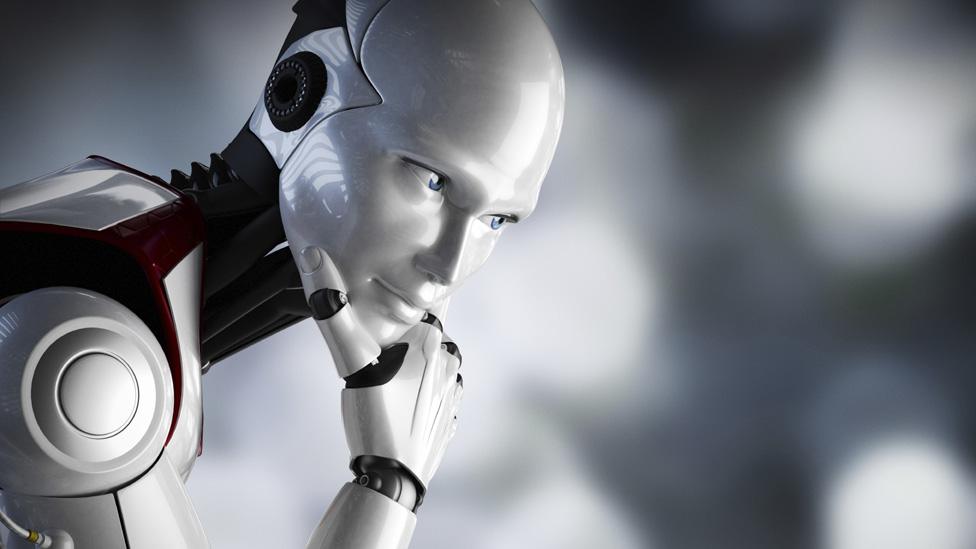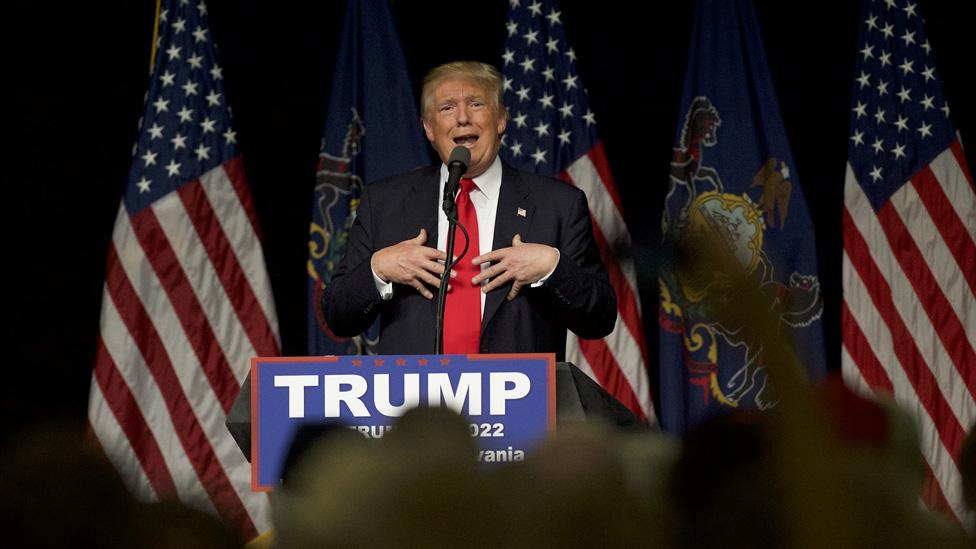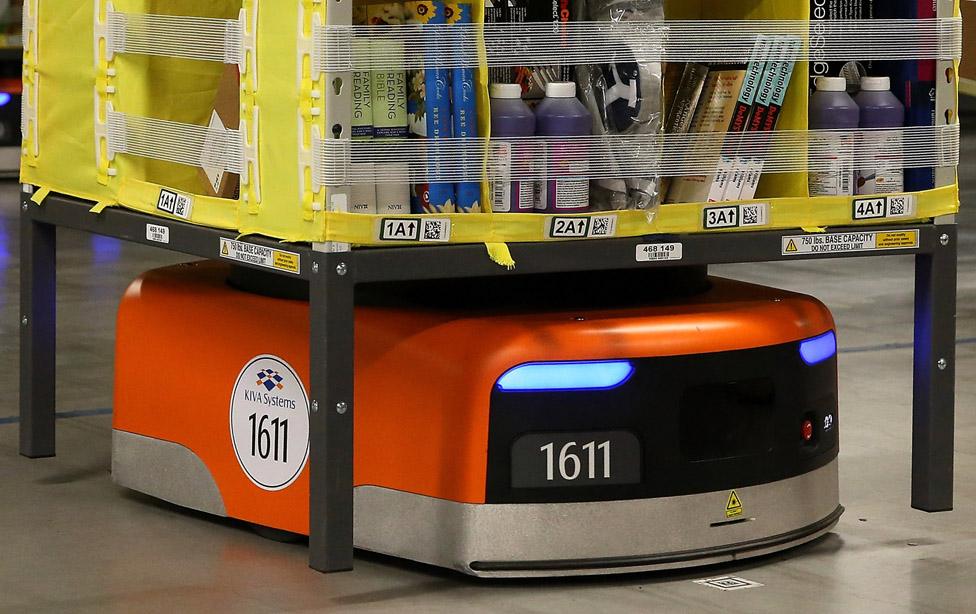Rise of the Robots - and Donald Trump
- Published

Over the past year we have seen plenty of warnings about the potential impact of robots and artificial intelligence on jobs.
Now one of the leading prophets of this robot revolution has told the BBC he is already seeing another side-effect of automation - the rise of politicians such as Donald Trump and the Democratic presidential hopeful Bernie Sanders.
Martin Ford's Rise of the Robots won all sorts of awards for its compelling account of a wave of automation sweeping through every area of our lives, posing a serious threat to our economic well-being. But there has also been plenty of pushback from economists who reckon his conclusion is wrong and that, as in previous industrial revolutions, the overall impact on jobs will be positive.
In London to speak at a conference on robots held by the Bank of America, he told me that he didn't think this latest technology upheaval would be as benign as in the past: "The thing is that this time machines are now in some sense beginning to think. And what that means is we're seeing machines encroach on the kind of capabilities that set humans apart."
He sees the robots moving up the value chain, threatening any jobs which involve humans sitting in front of screens dealing with information - the kind of work which we used to think offered security to middle-class people with average skills.
Look at the unemployment statistics at the moment and it is hard to detect this wave of job destruction, at least not on the scale of the 1980s when manufacturing jobs were vanishing. But Mr Ford says the impact has been felt in workers' pockets. In his presentation at the conference he put up a graph which showed American productivity rising in step with hourly wages - until 30 years ago when the two lines started to diverge. What's happened, he says, is that more of the rewards of rising productivity are going to capital - in other words to the owners of the robots - with workers left behind.

This hollowing out of the middle class, says Martin Ford, is already having an impact: "That's one of the things that is driving the political upheaval - you can tie the rise of Trump and Sanders to this phenomenon which has been going on for a long time."
Now, there are new jobs coming along as a result of new technology - think, for instance of the thousands of people working in warehouses sending out goods ordered online. But another presentation at yesterday's robotics conference was an illustration that this work may not prove very durable. One of the founders of Kiva, the robotics company bought by Amazon in 2012, showed what impact its systems were having on the retailer's business.

The firm now has 30,000 robots moving millions of products across giant warehouses, with their position and the path they travel controlled by complex algorithms. This has cut staff numbers in those warehouses by two-thirds, though humans are still needed to pick the individual products and put them in boxes. Automating that last task, it seems, will take a long time - at the moment the best robot can only pick 10 different products in 20 minutes, far behind a human picker.
But Martin Ford says over the next 10 or 20 years machine learning is going to make advances we can barely imagine: "There really isn't an endpoint to this," he says. "There's no point at which you can say it's going to get this good and no better - it's just going to get better and better."
If robots can do everything, and the rewards all flow to those who own them, he sees rising inequality, and a threat to the whole current model of capitalism. That may be an unduly pessimistic view - others see automation bringing huge improvements to our lives and offering us greater leisure time. But there's a growing consensus that the march of the robots has big implications for the global economy and policymakers need to start planning for them.
You can hear an interview with Martin Ford on Friday's edition of Tech Tent on the BBC World Service at 16:00 BST.